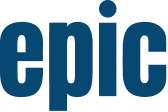Call for Participation
Join EPIC2023—a treasured annual gathering of people across all disciplines, sectors, and industries who use ethnography to drive understanding, innovation, and change.
Now in its 19th year, EPIC conference is a warm, inclusive event that combines practical learning, meaningful networking, and the inspiration and debate that we need in a changing world. EPIC is a nonprofit organization powered by members and volunteers; learn more.
We are no longer accepting proposals for Main Program presentations. The original call for proposals can be viewed here.
